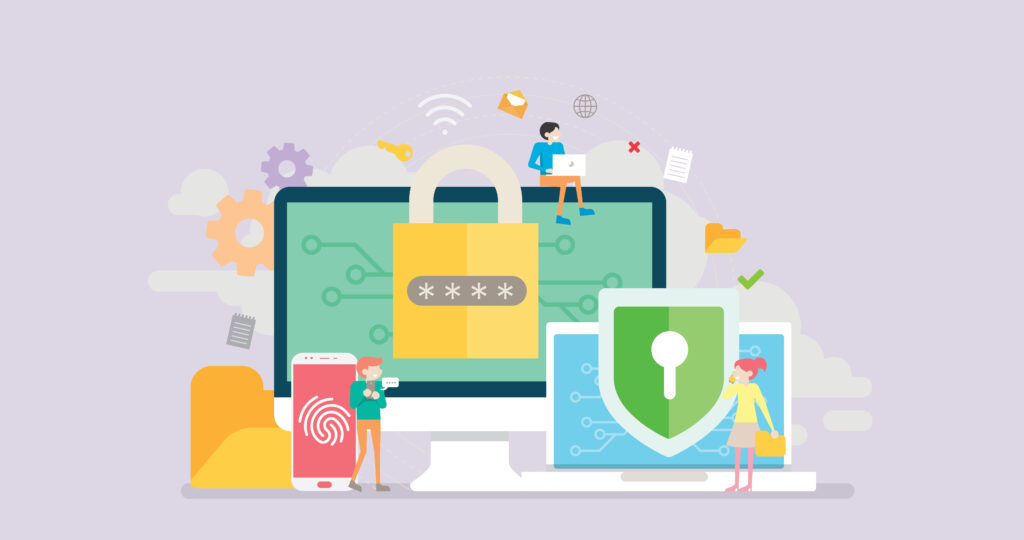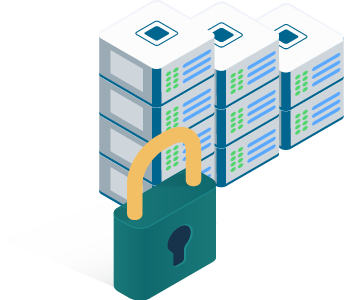LogiCommerce is trusted by global enterprise brands and wholesalers, across industries
eCommerce has revolutionized the way we buy and sell products and services. It is now possible to conduct transactions from anywhere in the world and at any time of the day. However, to ensure consumer confidence in eCommerce, effective security measures are necessary.
Security is important in eCommerce for several reasons. First, customers' personal and financial data must be protected. This data includes information such as names, addresses, credit card numbers and passwords. If this information falls into the wrong hands, customers can become victims of fraud and identity theft.
Second, eCommerce security helps ensure the integrity of transactions. Retailers must ensure that transactions are processed securely, and that customer financial information is protected throughout the transaction process.
Finally, eCommerce security helps protect businesses against fraud. Fraudsters may attempt to defraud online retailers by using stolen or counterfeit credit cards. Security measures, such as two-factor authentication and e-mail address verification, can help prevent fraud.

There are several security measures that online retailers can implement to protect their customers' information, including:
Contents
Encrypt customers' personal and financial data so that it cannot be read by fraudsters. Encryption is a security technique that can be used to protect confidential data transmitted over the Internet network. It consists of transforming the original data into an unreadable format (encryption) by using a cryptographic algorithm.
To encrypt the data, an encryption key is used that can only be unlocked with a corresponding decryption key. Thus, even if an attacker intercepts the encrypted data, he will not be able to read it without the corresponding decryption key.
The SSL (Secure Sockets Layer) Certificate is a data file that is installed on the web server to ensure a secure connection between a server and a client. When a connection is established using SSL, the information transmitted between the server and the client is encrypted, which protects confidential data such as passwords, credit card numbers, among others.
The SSL Certificate is composed of two keys: a public key and a private key. The public key is used to encrypt the information transmitted in the SSL connection, while the private key is used to decrypt it. The combination of these two keys ensures that the information can only be read by the server and authorized clients.
Authentication is a process used to verify a user's identity to allow access to confidential and restricted information, such as email accounts, online banking accounts and other private systems. In authentication systems, the user is asked to provide a set of identification credentials, such as a username and password, and sometimes additional information such as a verification code or an answer to a security question.
Once these credentials are provided, the information received is verified and a comparison is made against records in the system database. Two-factor authentication involves adding a second layer of security. For example, after providing your username and password, a two-factor authentication system may send a unique code to your cell phone that must be entered into the system before access to restricted information is allowed.

Email address verification is a process used to check the validity of an email address before processing a request, such as registering an account on a website, recovering a password or other actions where the use of an email is required. In email address verification, a confirmation email is sent to the user who provided the email address.
This email generally contains a verification link that the user must click to confirm that the email address provided is correct and that the user is the rightful owner of that address.
Transaction monitoring is a process used to detect unusual activity in a bank or other financial account. This technique is commonly used to prevent and detect illegal activities, such as money laundering or misuse of funds. In transaction monitoring, automated systems help compare actual transactions against previously established patterns of behavior to detect possible unusual transactions.
These rules are based on factors such as amount, geographic distribution, time between transactions and other parameters defined by the financial institution. If seizures that fall outside the normal pattern are detected, further investigation may be conducted to determine if illegal or fraudulent activity is involved.
LogiCommerce offers a secure, global infrastructure that ensures data protection and continuous backups. This includes 24x7 monitoring for all our locations worldwide.
We comply with the specific requirements set by the General Data Protection Regulation (GDPR) to ensure the correct processing of personal data. We aim to preserve the confidentiality, integrity and availability of data in the cloud by complying with specific business requirements for information protection.
We constantly monitor all elements of our platform and employ a human team that manually analyzes transactions for the purpose of detecting anomalies and potentially harmful fraud. In addition, we use Web Application Firewall (WAF) to protect your eCommerce against common misbehavior and hacking, blocking technical attacks such as SQL injection, remote file inclusion and DDoS attacks.
Finally, we perform automatic backups to ensure that your online store is always safe.

In conclusion, security is vital to the success of eCommerce. Retailers that implement effective security measures can protect their customers and improve the integrity and trust of their transactions. As eCommerce continues to grow in popularity, it is essential that online retailers take steps to ensure the security of their customers' data.
